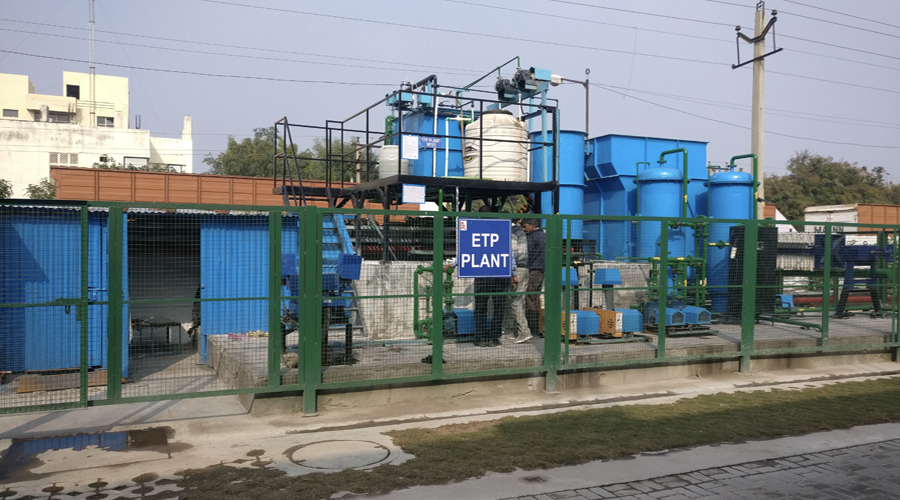ETP Plant Manufacturer
Effluent Treatment Plant
An Effluent Treatment Plant (ETP) is a specialized facility designed to treat industrial wastewater before it is discharged into the environment. Utilizing a combination of physical, chemical, and biological processes, ETPs effectively remove harmful contaminants and pollutants from wastewater.
These plants are vital for protecting the environment, preserving aquatic ecosystems, and maintaining public health standards. Beyond environmental protection, ETPs play a crucial role in minimizing ecological damage, ensuring regulatory compliance, and supporting sustainable industrial practices.
By managing wastewater responsibly, ETPs help reduce the environmental footprint of industrial operations. They also promote resource conservation and enable the safe reuse of treated water for various applications, contributing significantly to sustainable development.
Why Choose Hydroflux Engineering for ETP Plants?
Hydroflux Engineering is your reliable partner for ETP plant manufacturing and services. With a strong foundation in technical expertise and innovation, we deliver efficient and customized wastewater treatment solutions that meet the unique needs of every client.
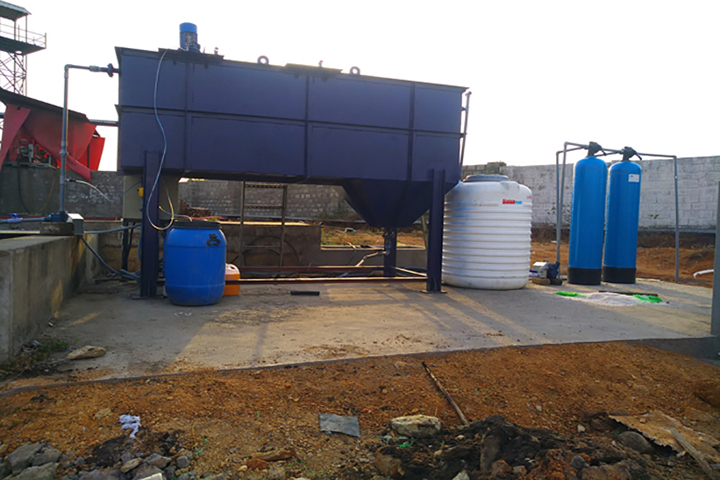
Our Strengths:
- Innovative and Cutting-Edge Solutions: Leverage the latest technologies and industry best practices to ensure efficient and future-ready wastewater treatment systems.
- Cost-Effective Services: Delivering high-quality solutions that optimize performance while keeping your budget in check.
- Tailor-Made Systems for Your Requirements: Customized ETP solutions designed to align perfectly with your specific industrial needs and operational goals.
- Commitment to Quality and Reliability: Strict adherence to quality standards, ensuring durable systems and consistent service you can depend on.
Working Process of an ETP Plant.
The Effluent Treatment Plant (ETP) operates through a comprehensive, multi-stage process designed to treat industrial wastewater effectively. The process begins with physical treatment, which includes screening to remove large debris and sedimentation to settle suspended particles.
Next, chemical treatment is applied to adjust pH levels and precipitate dissolved contaminants, such as heavy metals. This is followed by biological treatment, where aerobic or anaerobic microorganisms break down organic pollutants.
The final stage, tertiary treatment, utilizes advanced methods like filtration, disinfection, or activated carbon adsorption to remove any remaining impurities
The outcome is treated water that complies with environmental standards, making it suitable for safe discharge or potential reuse. Additionally, the sludge generated during the process is further treated or safely disposed of, ensuring an environmentally responsible approach to wastewater management
How We Support Your ETP Plant Requirements
Hydroflux Engineering offers end-to-end Effluent Treatment Plant (ETP) solutions, starting with thoroughly evaluating your specific needs. Our approach begins by analyzing your wastewater composition, regulatory obligations, and operational requirements.
Based on this analysis, we recommend the most suitable technology—balancing performance, cost-efficiency, and environmental sustainability. We also assess capacity requirements to ensure the system handles your projected wastewater volume effectively
Throughout the process, we work closely with you, providing personalized solutions and expert consultation to keep you informed and involved every step of the way.
Our commitment to quality ensures that the final ETP design aligns with your goals—delivering reliable, compliant, and efficient wastewater treatment systems tailored to your operations.
Different Types of Effluent Treatment Plant (ETP) Technologies:
-
Activated Sludge Process
Uses microbial activity in aerated tanks to break down organic contaminants in wastewater. - Extended Aeration Process: A variation of the activated sludge process featuring longer aeration times, ideal for treating low-to-medium strength wastewater
- Membrane Bioreactor (MBR): Combines biological treatment with membrane filtration, producing high-quality effluent.
- Sequential Batch Reactor (SBR): Operates in batch mode, enabling multiple treatment stages within a single reactor.
- Moving Bed Biofilm Reactor (MBBR): Utilizes floating plastic media to support biofilm growth, improving biological treatment efficiency.
Frequently Asked Questions (FAQ)
Our Clients Testimonials
Our clients consistently commend our high-quality manufacturing and the effectiveness of our wastewater treatment services, encompassing STP, ETP, WTP, Industrial RO, Softener, OWC, and more, delivering exceptional results.
Hydroflux provided an STP system for one of our large residential projects. The plant has been running smoothly, and we’re reusing treated water for landscaping and flushing. Their team did an excellent job with installation and support.

Ravi Sharma
L&T ConstructionAt our telecom office site, Hydroflux installed a compact RO + WTP system. The system is low-maintenance, efficient, and gives us good water quality. They handled the project professionally.

Rajeev Arora
Airtel Facility TeamHydroflux installed a wastewater treatment system for our manufacturing unit. The plant works as per industrial discharge norms. Their timely service and AMC support have been great.

Meenal Kapoor
Samsung ElectronicsWe required an industrial ETP with a ZLD setup. Hydroflux delivered exactly what we needed. Their design is robust and helps us recycle water back into our process lines.
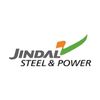
Anil Deswal
Jindal Steel & PowerOur university uses Hydroflux STP to manage sewage within the campus. The treated water is used for gardening, and the plant is eco-friendly. Their technical team is cooperative and trained our staff well.

Dr. Aftab Khan
Jamia Hamdard UniversityWe used Hydroflux for WTP system installation at one of our metro depots. The water treatment system is reliable and easy to maintain. Their service team is always on time.

Sandeep Malhotra
Delhi Metro Rail Corporation (DMRC)We use Hydroflux’s STP and ZLD solution at our bottling plant. Water reuse and discharge quality have both improved. Their ZLD setup helped us clear compliance smoothly.

Vikram Joshi
Pepsi Bottling Unit (Jai Beverages)We installed a RO plant at our Sikandrabad tiles factory. The system provides consistent water quality for tile processing. Very effective and energy-efficient.

Sanjay Singh
Kajaria CeramicsHydroflux installed a compact STP system at our food production plant. Treated water is reused for utility and cleaning. The system is easy to run and completely odorless.
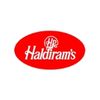
Poonam Verma
Haldiram’s Production UnitOur Gurgaon residential projects have Hydroflux’s STPs. They help us recycle and reuse water, which supports our green building certifications. We’re satisfied with their support even after handover.

Meena Rathi
Raheja DevelopersHydroflux delivered a 690 KLD STP plant for our township. The plant runs automatically and treats large volumes efficiently. It’s been a valuable addition to our sustainability goals.

Ritesh Goyal
Omaxe LtdWe installed an STP from Hydroflux for our resort. Water from bathrooms and kitchen is now treated and reused in our gardens. The plant is silent and blends into our eco-friendly theme.

Arjun Mehta
Best Western ResortHydroflux installed a small but high-efficiency ETP at our Manesar unit. We’ve had no major issues and water discharge is always within limit. Their service is quick and professional.
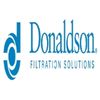
Priti Sharma
Donaldson India Filter SystemsWe’re using Hydroflux’s STP in our hotel’s backend operations. The system helps us recycle greywater for flushing. Their setup is clean, quiet, and very effective.

Ramesh Yadav
Radisson HotelsHydroflux supplied a robust ETP system for our Bokaro cement plant. It handles high loads and treats effluent effectively. We’ve seen a clear improvement in compliance and water reuse.

Alok Sharma
Dalmia Bharat CementWe installed a compact RO + WTP setup at our Manesar unit through Hydroflux. It runs quietly and requires very little manual handling. The system is reliable and consistent in water output.

Tanya Mehra
BRADY Company India Pvt LtdHydroflux provided an automated ETP solution at our Vapi facility. The system helps us recycle water and control our wastewater discharge. Their service support is excellent even post-installation.

Ritu Jain
HAVELLS IndiaAt our printing unit, Hydroflux installed a RO plant to ensure water quality for ink processing. The plant has reduced scale issues and improved equipment life. It was a great decision to go with them.

Saurabh Chawla
Dainik BhaskarHydroflux provided an MBR-based STP for our Gurgaon campus. The treated water is clear and odorless, perfect for reuse. We are happy with their engineering and service quality.


